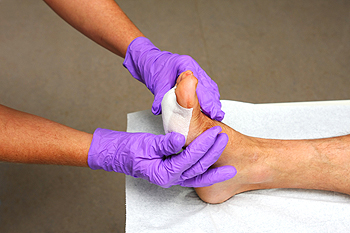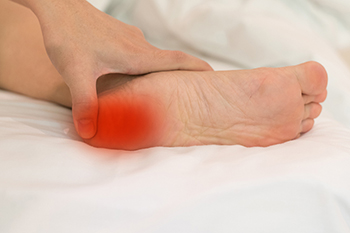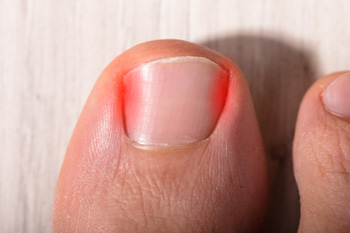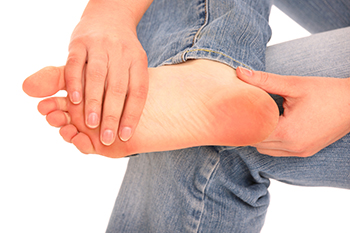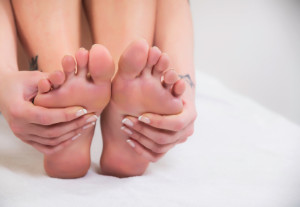
As people become frail with age, their feet often reflect this decline. Weakness, thinner skin, and poor circulation can make the feet more vulnerable to injury and infection. Balance issues and reduced mobility may lead to falls or pressure points, which can cause sores or joint problems. Even minor foot concerns, like a callus or toenail issue, can become serious in someone who is frail. In many cases, these individuals may not feel pain clearly or may not notice early signs of trouble. Regular foot checks and gentle care are essential to protect skin integrity and maintain mobility. Addressing concerns early helps avoid complications that could reduce independence or lead to hospitalization. If you or someone you care for is experiencing foot problems along with increased frailty, it is suggested you see a podiatrist for a diagnosis and appropriate treatment.
If you need your feet checked, contact one of our podiatrists of Foot Health Center of Merrimack Valley. Our doctors will attend to all of your foot and ankle needs and provide you with quality treatment.
Geriatrics and Podiatry
When people age, some common issues that may occur are bone density loss, dry skin, poor circulation, and rough brittle nails. These issues may also affect your foot health if the necessary steps are not taken to alleviate the problems.
It is important to take care of your feet because feet that are injured or diseased can affect your overall health. Having painful feet hinders your ability to do daily activities or may decrease your willingness to do the things that you need to do.
Visiting Your Geriatrician
As we age, health problems become more likely, so it is essential to visit your doctor for check-ups to ensure that you are doing the best you can to take care of your health. It is recommended to check your feet frequently for any possible cuts, bruises, swelling, corns or any other irregularities.
Taking Care of Elderly Feet
Cracked or dry feet can be treated by applying moisturizer often. It is also important not to wear old socks because the older the sock is, the higher the possibility there will be that there is bacteria there. Wear fresh socks and make sure they fit properly.
Proper foot health means that you can have a more active lifestyle and you will not be bogged down by pain. Foot health also leads to good circulation, which is paramount for overall health.
If you have any questions, please feel free to contact one of our offices located in North Andover, and Tewksbury, MA . We offer the newest diagnostic tools and technology to treat your foot and ankle needs.

